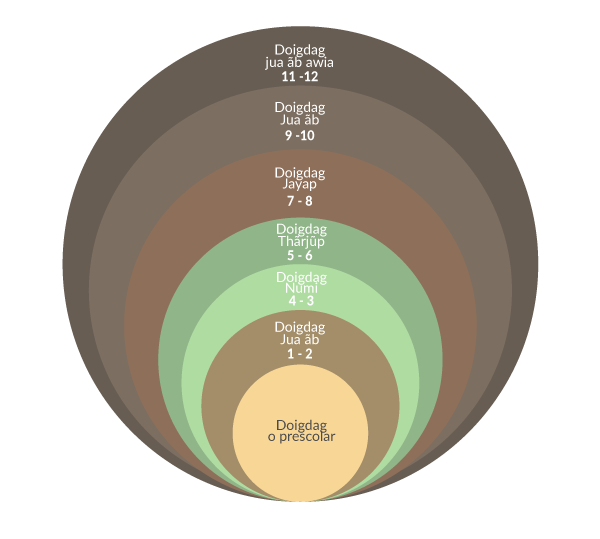Content
- What Happens If You Don’t Report Cryptocurrency on Taxes?
- Is there a tax exemption for small crypto purchases in the UK?
- Ready for Web3?
- What happens if I don’t report my crypto gains and losses?
- Motley Fool Investing Philosophy
- How to File Your Crypto Taxes in 2023
- What if I’ve earned cryptocurrency from my job?
Crypto tax software is a type of software designed to help users calculate and file their taxes on digital currency transactions. It automates the process of calculating capital gains and losses from digital currency transactions, as well as providing guidance on how to accurately report them on tax returns. Crypto tax software is available for both individual and business users. Compare the best Crypto Tax software in the UK currently available using the table below.
Have you ever wondered what #taxes you should pay when dealing with #cryptocurrency?
Worry not, as @LegalNodes Financial Advisor @Lavrishchev has you covered! In his most recent article you can read all about virtual assets #taxation in the UK! #blockchain #dlt #legaltech #law https://t.co/dYATw5lHlR— Nik Kliapets (@NikKliapets) January 18, 2019
Cryptocurrency received as employment income count as ‘money’s worth’ and are subject to Income Tax and National Insurance contributions on the value of the asset. The treatment of cryptocurrency in the UK tax system is an evolving area, we will keep this article up to date with all the latest UK cryptocurrency tax changes. Recommendations and obligations for crypto investors will vary depending on the circumstance. We will update this article as the UK tax treatment of cryptocurrency develops. Investors in MicroStrategy, Tesla, Block and Coinbase need to consider how wild price swings will affect results, not only directly but indirectly due to complex tax accounting rules.
What Happens If You Don’t Report Cryptocurrency on Taxes?
The use of a professional cryptocurrency accountant, or a cryptocurrency tax tool, can help investors on a tight deadline. However, research conducted by Koinly has found that many UK crypto investors find crypto tax rules hard to follow. If you’ve had gains and losses on different types of cryptocurrency, you can sell both and use the losers to offset your gains. If you received cryptocurrency as a gift, then you potentially have two reporting obligations.

We carefully consider complex tax scenarios such as DeFi loans, on-chain DEX transactions, NFTs, gas fees, leveraged trading, and staking rewards. We provide a full breakdown of each calculation so you can understand exactly how your taxes have been calculated and what rules have been applied. If you used a DEX such as Uniswap, Pancakeswap, or Quickswap, we have you covered. Our platform is trusted by industry-leading accountants who value detailed and accurate reports. When you realize a gain after selling or disposing of crypto, you’re required to pay taxes on the amount of the gain.
Is there a tax exemption for small crypto purchases in the UK?
The most credible estimates suggest that the Bitcoin network consumes as much energy as countries the size of Norway or Argentina. Simply connect your exchange accounts / public addresses and let Koinly calculate your capital gains, then generate a tax report for next year. Your final report is accepted by your tax agency and easy to print & file. Koinly is an accounting and tax reporting software for cryptocurrency investors, hobbyists and accountants. With over 700 integrations, Koinly supports over 400 Exchanges, 100 Wallets and over 170 Blockchains.
Everyone is asking the same questions in relation to Cryptocurrency taxation in the UK. If you have invested/traded in Cryptocurrency and would like help with how to work out your gains/losses and/or how to complete your tax returns, please contact info@nealford.co.uk
— NealFord Accountants (@nealfordaccount) May 23, 2018
Particularly if you intend to deploy strategies like tax-loss harvesting, you’ll want to use capable software to ensure you minimize your tax burden. HMRC does not consider cryptocurrency to be currency or money. Under UK crypto tax rules, profits on cryptocurrency disposals are considered capital gains and are accordingly subject to capital gains taxes. TaxBit connects the consumer and enterprise cryptocurrency tax experiences. Whether you are a platform that needs to issue 1099s, or a user that needs to report their taxes, TaxBit’s cryptocurrency tax software unifies the process. We connect the processes of enterprises producing and issuing 1099s with that of consumers transforming their 1099s and other data into completed tax reports that are ready to file.
Ready for Web3?
In terms of price appreciation or depreciation, the same above-described rules apply. This means that if, for example, you receive a cryptoasset in exchange for goods or services on January 1st, the price of the cryptoasset on that date is considered your cost basis. If you later sell the cryptoasset or use it to buy something, your profit or loss will depend on the price at the time you make the exchange.

It offers a free package that allows you to report a maximum of 500 tax events and synchronizes after every 24 hours. However, its best-value plan, called Hodler, is still incredibly affordable at only £89/tax year and is suitable for all small to intermediate investors. Whales may want the Pro plan for £169/tax year to enjoy limitless tax events and synchronizations every three hours.
What happens if I don’t report my crypto gains and losses?
Since then Bitcoin has generated enormous amounts of publicity and its continued exorbitant price rise has attracted worldwide interest and investors. Many have made large gains and interest in cryptoassets continues to grow and develop. This resulted in HMRC publishing their views on the tax treatment of cryptoassets. This article how to avoid crypto taxes UK provides a general overview of the UK tax position although there are many facets of crypoassets not covered herein. Is complicated to understand and involves calculating your income tax to establish if you are within the basic tax rate banding. Those within the ‘basic tax rate’ pay 10% capital gains tax, with others paying 20%.

Overall, the type of crypto-taxable event determines any additional form that you may need to complete and how you’ll report that crypto activity. While it might seem like a low-cost activity, in theory, crypto mining comes with considerable expenses, including computers, servers, electricity, and internet service provider charges. If you are a crypto miner, you can deduct these costs against your mining income, though the amount you’ll be able to deduct will depend on whether you categorize your operation as a business. As with any investment, you can take advantage of crypto gains by also claiming losses on other investments during the year. This process is known as tax-loss harvesting, and the maximum you can write off in a year is $3,000. This form logs every purchase or sale of crypto as an investment.
In these instances, you will be liable to pay Capital Gains Tax when you dispose of the crypto. It has become more common, particularly for companies operating within the crypto-space, for employees to be paid in cryptocurrencies as opposed to cash. If the cryptocurrency is a readily convertible asset it will be subject to PAYE – otherwise it will be taxable as a benefit in kind.
Motley Fool Investing Philosophy
In most countries you are required to record the value of the cryptocurrency in your local currency at the time of the transaction. This can be extremely time consuming to do by hand, since most exchange records do not have a reference price point, and records between exchanges are not easily compatible. If you keep records in software like Koinly or CoinTracker, you can connect them with your online tax software of choice.

The most accurate crypto tax software solution for both investors and accountants. Direct support for over 400 exchanges, wallets, DEXs, and DeFi protocols. Our platform performs tax calculations with a high degree of accuracy.
The tax rates for crypto gains are the same as capital gains taxes for stocks. Individuals have to pay taxes for cryptocurrencies received from mining, airdrop, confirmation rewards, and crypto received as salary from an employer. The crypto assets donated https://xcritical.com/ to charity do not apply to capital gains tax unless the donation is more than the acquisition cost. Without a doubt, crypto taxes have always been complicated and continue to be among the biggest obstacles to widespread cryptocurrency adoption.
How to File Your Crypto Taxes in 2023
We do not offer financial advice, advisory or brokerage services, nor do we recommend or advise individuals or to buy or sell particular stocks or securities. Performance information may have changed since the time of publication. If you don’t need all of the profit from your crypto investment, you can decrease your tax burden by donating at least some of your crypto to charity. You’ll get a deduction worth the fair market value of your crypto at the time of donation. If you have the luxury of time on your side, you can always try to wait out a lower tax rate.
- HMRC does not consider cryptoassets to be currency or money.
- BitGo provides the security and operational backbone for more than 1500 institutional clients in 50 countries, including many regulated entities and the world’s top cryptocurrency exchanges and platforms.
- If you later sell the cryptoasset or use it to buy something, your profit or loss will depend on the price at the time you make the exchange.
- As a result, disposing of your crypto in a low-income year can lead to a significantly reduced tax rate.
- Get clarity on key terms like public & private keys, transaction inputs & outputs, confirmation times, and more.How is cryptocurrency taxed?
- While there’s no way to legally avoid your crypto taxes, there are strategies that you can use to reduce them.
Similarly, bitcoin ATMs are legal in the United Kingdom, provided that they are licensed and regulated by the FCA. Currently, the United Kingdom has the most machines in a European country, with over 250 bitcoin ATMs across the country. In addition, the United Kingdom requires know-your-customer and customer due diligence checks for all consumers of crypto-native businesses. Firms based in the United Kingdom must additionally comply with the Fifth Money Laundering Directive , effective January 10, 2020, until further notice. 5AMLD is the first European Union ALMD to cover cryptocurrency and bitcoins.
Can HMRC Track Crypto Assets?
After importing all transactions, simply generate your tax report with the click of a button. Our platform supports also tax calculations for futures and margin trading, DeFi, and NFTs. If you realize a gain from selling an NFT, then you owe taxes on those gains.
Keep track of all of your wallets and record in which protocols you’ve staked money. When trading, make sure to keep enough money aside to fulfill your tax obligations. Remember the value of the crypto, in terms of GBP, when you report your taxes.
Based on your investment activity, you will have to pay capital gain taxes or income tax. Koinly, TokenTax and CoinTracker are among the more popular sites that help you stay on top of your crypto taxes. They help you scrape data from exchanges and DeFi protocols, and calculate your final tax bill. HMRC expect records, calculations and reporting to all be undertaken in GBP. Therefore, like other assets, it is possible for capital gains to arise when exchange rates move, even if the value of the asset expressed in a non-UK currency remains the same. Where value may be recorded in different cryptocurrencies a double conversion will be required .





